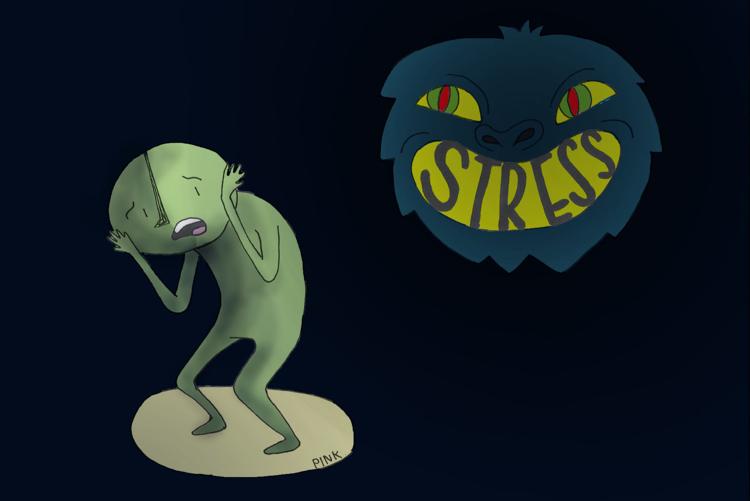 When one thinks of anger, they almost always think of it negatively. Anger is widely seen as a detriment to health that taxes a person’s heart, disrupts their sleep patterns and makes it seem like they’re holding the world up on their shoulders.
When one thinks of anger, they almost always think of it negatively. Anger is widely seen as a detriment to health that taxes a person’s heart, disrupts their sleep patterns and makes it seem like they’re holding the world up on their shoulders.
Biologically speaking, anger in the short term isn’t bad in and of itself. Simply put, it’s an important and temporary bodily reaction triggered when changes in the environment are perceived as possible threats.
However, with many angery like financial instability and job security being inherently long term, it is critical for individuals to recognize the signs of chronic long-term anger within their lives.
Anger occurs when the sympathetic nervous system is triggered by a change in the outside environment. As soon as the brain senses the first wisps of potentially threatening stimuli, it signals to the endocrine system to produce large amounts of adrenaline and cortical. These two substances act as catalysts within the body, increasing heart rate and blood pressure while also expanding overall glucose usage to repair muscular tissue and enhance brain function. This contributes to the hyper alertness experienced in angry situations, as well as muscle tension.
Once the perceived threat is removed, the endocrine system ceases to produce adrenaline and cortical, the brain signals to the muscles to relax and breathing and heart rate return to normal. In the short term, this neurological reaction can be beneficial in many cases, from actual dangerous situations to last-minute cramming before a test.
That being said, long-term exposure to these anger chemicals can be detrimental for the body and the mind. According to the American Psychological Association, long-term anger can present itself through a number of problematic symptoms, including migraines, chronic pain, heart palpitations, insomnia and irritable bowel syndrome, along with a slew of other possible issues.
But anger doesn’t just affect the body. I cannot describe how many times I have become emotional, forgetful or moody during finals week or a particularly intense cycle of work. Increases in production of cortical, particularly, have been linked to heightened risks of depression, anxiety and memory complications.
The body wasn’t made to be in a state of fight or flight for prolonged periods of time. While anger is an evolutionary necessity, after a while, it can and will muddy the waters of nearly all aspects of life. Speaking from personal experience, if it goes unchecked, it will absolutely affect one’s quality of life.
It’s important to not only understand the source of anger, but to also learn how to cope with that anger. Just as many people experience anger in a multitude of forms, people find relief from anger in equally varied ways.
While a 40-minute run or an hour in the weight room may boost my relaxation, exercise may simply be another anger or for someone else. There are plenty of generalized solutions for chronic anger that permeate the internet, but at the end of the day, to each their own. One person’s ideal relaxation technique may be uncomfortable or downright irritating for another.
If one does not have a lot of free time to wind down, simple breathing and mindfulness techniques can be of great use. High levels of sugar and trans fats have been linked to increased tension, so avoiding foods that are high in sugar, grease and caffeine can aid in minimizing anger levels.
While all humans experience and deal with anger, it is an annoyingly pervasive constant in our lives. Though it is neither a positive nor a negative, it is important to pay attention to the levels of anger that one is experiencing. Knowing the origin of anger and its effects on the body is the first step to truly knowing how to deal with it.
Accredited Online Anger Management Classes, Are Online Anger Management Classes Effective, Does Online Anger Management Work, Free Online Anger Management Workbook, Free Online Anger Management Worksheets, Online Anger Management Resources, Online Anger Management Tools, Online Anger Test, Online Christian Anger Management Classes, Online Classes Anger Management, Online Course On Anger Management, Online Courses In Anger Management, Online Help With Anger, Online Help With Anger Management